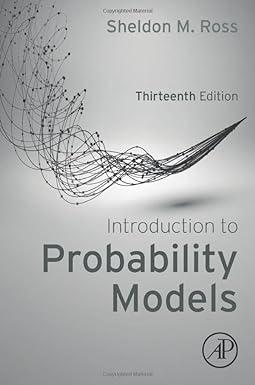In the match problem, say that (i, j ), i < j , is a pair if
Question:
In the match problem, say that (i, j ), i < j , is a pair if i chooses j ’s hat and j chooses i’s hat.
(a) Find the expected number of pairs.
(b) Let Qn denote the probability that there are no pairs, and derive a recursive formula for Qn in terms of Qj , j Hint: Use the cycle concept. (c) Use the recursion of part (b) to find Q8.
Fantastic news! We've Found the answer you've been seeking!
Step by Step Answer:
Related Book For 

Question Posted:






